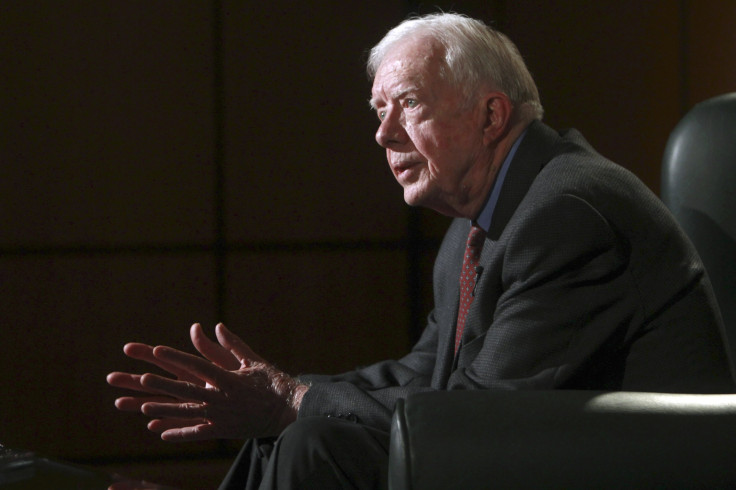Jimmy Carter Calls For U.S. Supreme Court Ban On 'Cruel And Unusual' Death Penalty

Former President Jimmy Carter has called on the United States Supreme Court to institute a nationwide ban on the death penalty.
Speaking to the Guardian in a Monday interview, Carter argued that the death penalty is cruelly and unfairly applied to minorities and poor people at a higher rate than other groups. Because the death penalty is so unfairly applied, Carter argues, the Supreme Court must once again look at such sentences as cruel and unusual punishment. The Supreme Court once made such a ruling in the 1972 case of Furman v. Georgia, which was ultimately overturned in a 1976 decision.
“It’s time for the supreme court to look at the totality of the death penalty once again,” Carter told the Guardian. “My preference would be for the court to rule that it is cruel and unusual punishment, which would make it prohibitive under the U.S. constitution.”
Carter’s biggest argument against the death penalty is that poor people and minorities are sentenced to die at rates overwhelmingly higher than memers of other classes. Privileged, moneyed white men, Carter says, almost always have the means to avoid a death penalty sentence, while poor minorities lack such opportunities.
“The only consistency today is that the people who are executed are almost always poor, from a racial minority or mentally deficient,” he told the Guardian. “In America today, if you have a good attorney you can avoid the death penalty; if you are white you can avoid it; if your victim was a racial minority you can avoid it. But if you are very poor or mentally deficient, or the victim is white, that’s the way you get sentenced to death.”
“It’s almost inconceivable in these modern days to imagine that a rich white man would be executed if he murdered a black person,” he added.
Carter’s call for a nationwide ban on the death penalty may come as a surprise to those familiar with his term as governor of Georgia. After the Supreme Court instituted a moratorium on the death penalty, Carter signed a new set of guidelines for Georgia in 1973, bringing the state into line with the Furman v. Georgia decision. When the Supreme Court once again declared the death penalty legal in 1976’s Gregg v. Georgia, it used Carter’s new execution guidelines to rule that the death penalty was not cruel or unusual punishment.
Now, Carter has expressed regret over his role in helping re-institute the death penalty in America.
“If I had to do that over again I would certainly be much more forceful in taking actions what would have prohibited the death penalty,” Carter said. “In complete honesty, when I was governor [of Georgia] I was not nearly as concerned about the unfairness of the application of the death penalty as I am now. I know much more now. I was looking at it from a much more parochial point of view -- I didn’t see the injustice of it as I do now.”
Carter plans to express his doubts about the death penalty as the opening speaker at the American Bar Association’s symposium on the death penalty on Tuesday at the Carter Center in Atlanta, Georgia. Other notable attendees and panelists at the symposium include the president of the Southern Center for Human Rights, Stephen B. Bright; former Texas Governor Mark White; and former Ohio Attorney General Jim Petro. Guardian journalist Ed Pilkington, who conducted the interview with Carter, will also speak at the symposium.
© Copyright IBTimes 2024. All rights reserved.




















